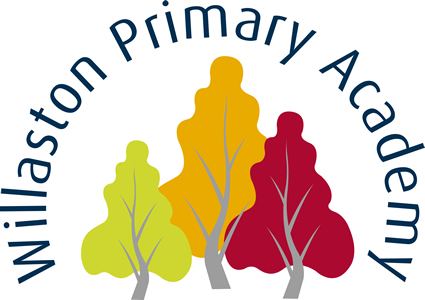Maths
🧮Intent
At Willaston Priamary Academy, we embrace a Mastery Curriculum approach to our mathematics teaching our intent in teaching to foster a deep understanding and appreciation of the subject. We have high expectations that all children will achieve by equipping all pupils with the necessary skills to succeed both academically and in everyday life. We strive to ensure that the whole class moves through content at the same pace and when we adapt, it is through depth rather than acceleration; everyone is given time to think deeply about the maths and we seek to develop a positive attitude in order to build self-confidence, resilience and a sense of achievement
Pupil premium is used to ensure that all children have full access to the mathematics curriculum. For children with SEND, our maths curriculum and the resources we use are adapted so that all children have an opportunity to receive their full educational entitlement and make use of considered and measurable interventions to support those who need it and help to identify any gaps in the children’s learning. Our maths curriculum is designed so that all children are able to fulfil their potential. We passionately believe that all children can reach these high standards.
Our curriculum is designed with the following key objectives:
· Conceptual Understanding: We strive to ensure that pupils grasp mathematical concepts rather than merely memorising facts. This understanding allows pupils to apply their knowledge to real-world problems and make connections across various mathematical areas.
· Variety of Approaches: We recognise that pupils have diverse learning styles. Therefore, we implement a variety of teaching approaches, incorporating manipulatives, visual aids, and technology to support differentiation and accessibility.
· Collaborative Learning: We believe in the power of collaboration. Pupils engage in discussions, peer tutoring, and group problem-solving activities, enhancing their verbal reasoning skills and confidence in expressing their thoughts.
By the end of their primary education, we aspire for every pupil to leave our school with not only a solid grounding in the principles of Mathematics, but also the ability to critically think and innovate.
🧮Implementation
In EYFS, we ensure that maths is part of their daily diet and give the children a wide range of experiences and opportunities to apply their mathematical skills. In order for the mastery approach to become successful in KS1 and KS2, we have created a bespoke maths lesson structure, incorporating the White Rose scheme.
The way we structure our lessons ensures a more consistent approach to teaching maths by dividing each lesson into 5 stages. All lessons begin with the ‘Revisit it’ stage. Children answer 5 questions that become increasingly more difficult based upon knowledge from the previous lessons, where key concepts are revisited and built upon over time to help support children’s fluency in mathematics. Mathematics discussions are then used during the ‘Talk about it’ stage where children are encouraged to, collaborate, explore and investigate a reasoning question with each other using a variety of manipulatives. Class teachers then ‘Teach it’ by delivering the skills and knowledge to answer a variety of questions for all abilities. Children then ‘Practise it’, using the skills they have been taught to answer a variety of varied fluency and reasoning questions, then finally children can ‘Extend it’ by answering further problem solving and reasoning questions to challenge children’s deeper understanding of the lesson.
Our Mathematics curriculum is implemented through a structured yet flexible approach, ensuring thorough coverage of the National Curriculum while allowing for the unique needs of our learners to be met. The following strategies illustrate our implementation plan:
Mastery Approach: We employ a mastery approach, where key concepts are revisited and built upon over time. Pupils engage in deep exploration of topics, enabling them to achieve a high level of understanding before moving on.
Engaging Resources: We carefully select high-quality resources, including interactive software, manipulatives, and tactile materials, ensuring that lessons are engaging and relevant to pupils' lives.
Assessment for Learning: Formative assessments are embedded in our teaching practices. Regular feedback is provided through marking, verbal discussions, and self/peer assessments, allowing pupils to identify their own learning goals and target areas for improvement.
Professional Development: Our teaching staff are committed to continuous professional development, attending workshops and training sessions to stay updated with best practices in mathematics education. This dedication to improvement ensures that our teaching methods are current and effective.
· Curriculum Enrichment: We offer enrichment opportunities such as Maths clubs, competitions and STEM challenges which provide additional context and excitement around learning Maths. These opportunities allow pupils to apply their skills in diverse settings.
🧮Impact
The impact of our Maths curriculum at Willaston is evident through various measures and outcomes:
· Engagement and Enjoyment: Pupils consistently express enthusiasm for Maths, as evidenced by feedback collected through pupil voice. Their engagement levels demonstrate a positive attitude towards the subject across all year groups.
· Resilience and Confidence: Through our focus on a Mastery approach, we observe enhanced resilience and confidence in our pupils. They are willing to tackle challenging problems and persist when faced with difficulties, demonstrating a significant improvement in their problem-solving abilities.
· Life Skills Development: Our pupils acquire not only mathematical knowledge but also critical life skills, including teamwork, communication, and analytical thinking – essential components for success in secondary education and beyond.
· Children will make good or better progress from their own personal starting points. By the end of KS2 they will be able to fluently recall their times tables up to 12x
· Progress is measured through a variety of methods such as: summative and formative assessments each term, pupil voice, lesson observations, learning walks, questioning and marking of books.
🧮White Rose Maths
In order to further develop our maths mastery curriculum, we use White Rose mastery approach to maths teaching from Year 1 to Year 6. It helps children learn in small steps and puts depth before breadth, giving children the skills they need to become confident and competent mathematicians
